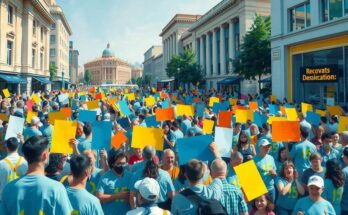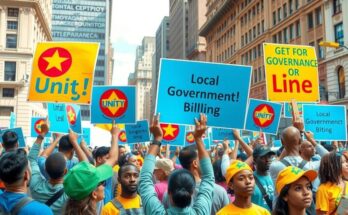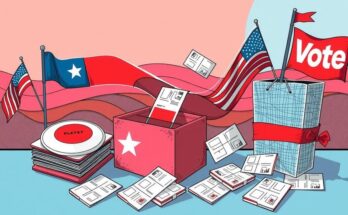Vice President Jeremiah Koung recounts a tense encounter with former President George Weah at the late Senator Johnson’s home, where Weah refused to shake his hand. Koung speculates that this snub stems from lingering hurt related to the 2023 presidential election. He asserts that Weah must accept their current political realities as Koung heads into his tenure as Vice President.
Vice President Jeremiah Koung recently discussed a tense encounter with former President George Weah at the residence of the late Senator Prince Yormie Johnson in Gbarnga. This visit occurred shortly after the senator’s death, prompting Koung to express his condolences to the family. While attending, Koung was surprised that Weah refused to shake his hand, as well as those of other notable attendees, which he initially attributed to health concerns.
During an interview with the Closing Argument Platform, Koung described the moment as unexpected, stating that he approached Weah’s car to extend a greeting in his capacity as Vice President and as a colleague. Despite this, Weah snubbed him. Koung noted that Weah had greeted other individuals at the gathering, leading him to wonder if the refusal was influenced by post-election sentiments stemming from his support for the Unity Party’s Joseph Boakai during the 2023 presidential election.
Koung speculated that the lingering tension between them may arise from Weah’s feelings regarding the election outcome. He commented, “If you’re hurt because of my support to the Unity Party, then you have five years to be hurt because I’m now the Vice President.” He further remarked on the need for Weah to accept their current political standings, emphasizing that he, too, aspired for political advancement, expressing his desire to be Vice President.
In summary, Vice President Jeremiah Koung’s recounting of his encounter with former President George Weah sheds light on the political tensions that persist following the recent presidential election. Despite his attempt to foster goodwill by expressing condolences, the rejection he faced from Weah indicates unresolved feelings regarding their electoral rivalry. Koung’s statements reflect a call for acceptance of their respective roles and the political realities moving forward beyond the election.
Original Source: frontpageafricaonline.com




